WP22 • CHASE & STATUS
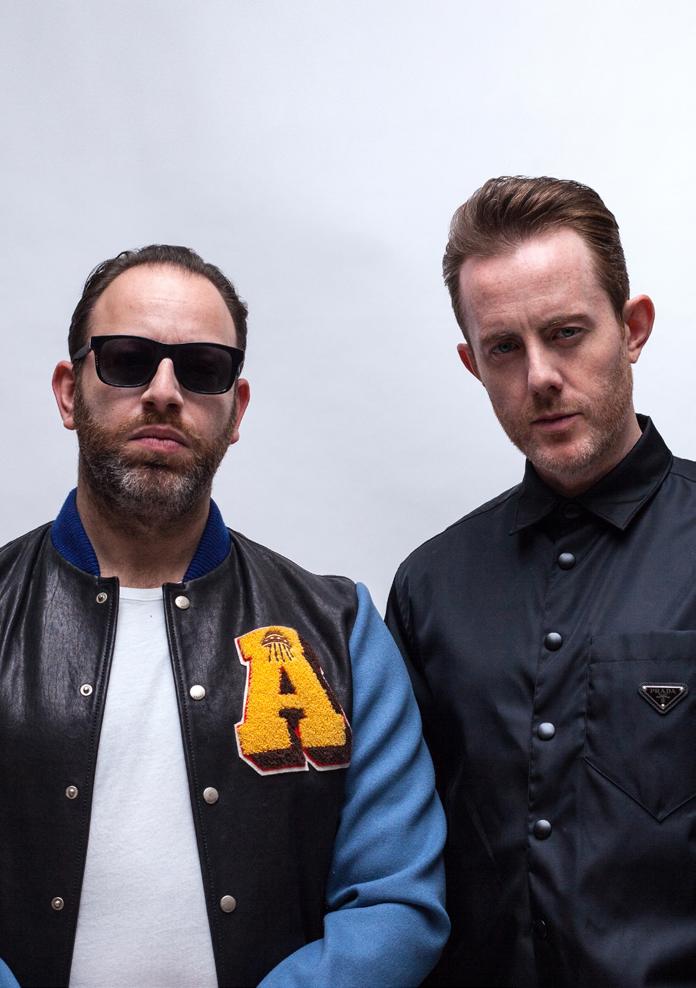
MAVERICK SABRE • CRISTALE
MOONCHILD • AFRONAUT ZU
SAMM HENSHAW • OWED +++
&
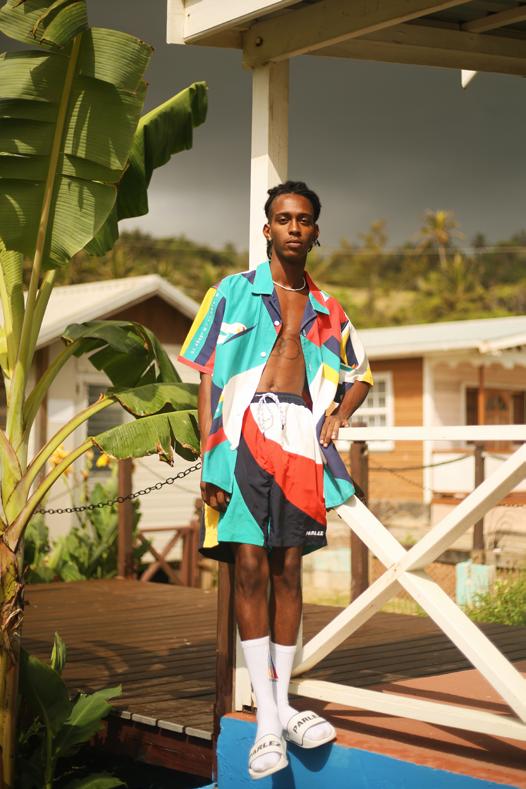
This is not a drill people. We are back in the building! They say absence makes the heart grow fonder and we’re overenamoured to finally be able to land in your digital laps, living rooms and wherever else we end up lying once again.
Welcome to Issue 22: in all of it’s pixely, digital glory. Kicking off proceedings, we’re blessed to have sat down with the legends that are Chase & Status. We delve into thier roots, individuality, musical responsibility, and creative processes.
Like an irresistible 3-for-1 supermarket sweep, we’re also excited to tripled up on our cover stars as we connect with Maverick Sabre for another exclusive photoshoot and interview. Not only that but we link with Cristale for our third cover again all exclusive!
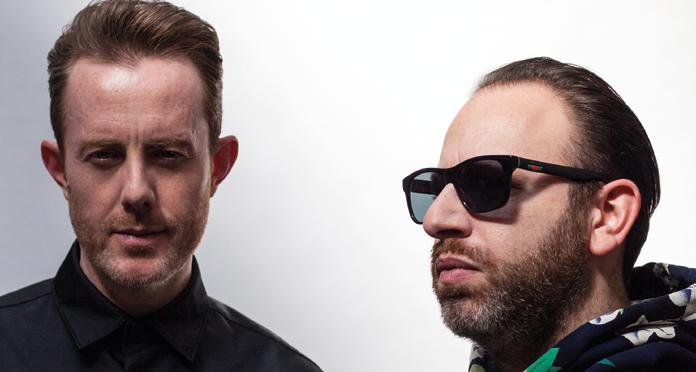
Digital magazines are a good way to release this content but it won’t be forever. Our plan is to return to physical printed magazines as soon as we can. We’ve all been itching for normality to return in every way and whilst we hope you’ve enjoyed our digital stopgaps, we’re more than ready to be able to let you get your hands on us again. As ever, big ups for your continued support throughout the past year and beyond.
Much love. Team Wordplay
Editor in Chief Matt Neville nev@wordplaymagazine.com
Art Director Sam Howle sam@wordplaymagazine.com
Content Editor Mike Pattemore mike@wordplaymagazine.com
Head of Photography
Anis Ali anis@wordplaymagazine.com
Blog Editor Ed Lindsay ed@wordplaymagazine.com
Marketing & Relations
Serena “The Isle of CC” Robb serena@wordplaymagazine.com
Wordplay Podcast
Tarek Chaudhury tarek@wordplaymagazine.com
Cover Photo Anis Ali
Contributors & Thanks
Aimee Hayward, Lewys Holkar, Daniella Ekundayo, Kate Vice, Callum Ritchie, Lee Colleen, Lloyd Ross, Ethan Evo, Timothy Ogu, Sam Hearn, Recktangle Films, Harvey Wallbanger, Dylan Barber, Emma Holmes, The Room, The Jazz Cafe, Good Machine, Imran Malik, Listen Up, Sony RCA, Atlantic UK, Andy Kettle, Dawbell, Wild Paths & Shure Microphones.
3
22 The views expressed and the images displayed in this publication are not necessarily shared by Wordplay Magazine. All images in this magazine are not to support vandalism but are to document a fast moving culture. No part of this publication may be reproduced in any form, copied or saved without permission in writing from the publisher. Wordplay Magazine is registered in England and the United Kingdom. © Wordplay Magazine 2021. All Rights Reserved.
...
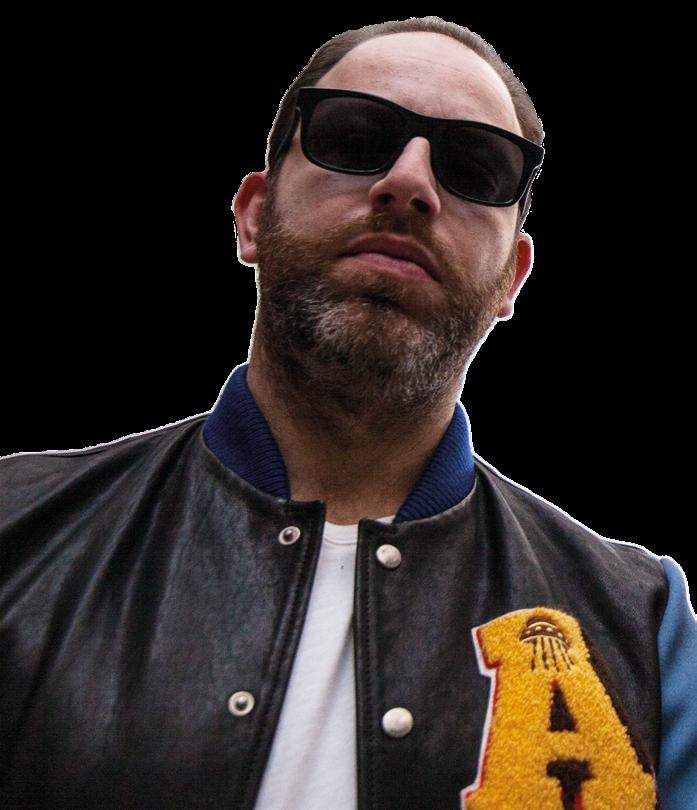

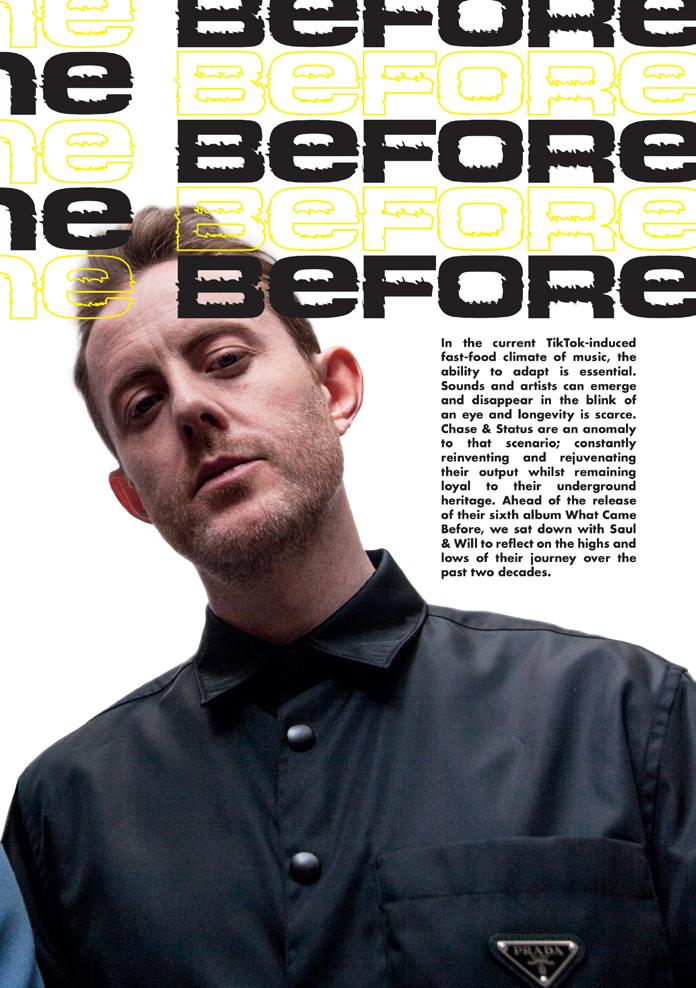
We start conversation over the duo’s earliest musical memories and Saul’s quick to joke that he can’t offer any romanticised stories or give his family much credit for taste-making. “The first song I heard that really intrigued me as a kid was Steve Miller Band’s The Joker. There was something about it; the melody, the guitar that stuck with me.”
Over time, their tastes seemingly developed in similar fashion; from the likes of Duran Duran, New Order and Ordinary World, through the more guitar-heavy sounds of Nirvana and Pearl Jam to the introduction of Hip Hop by way of The Chronic & Doggystyle, before by proxy of location, the early ‘90s introduced them to the sounds of Jungle and underground music. “I loved Hip Hop and really wanted to be a turntablist” Will divulges. “Having two of everything, thinking I was going to be a DMC world champion; I was obsessed with that stuff! The Grunge into Hip Hop into the Breakbeat/ pirate radio sort of thing; it all just felt rebellious and that what sort of connected it all. We had quite an eclectic taste and still do and I think that comes across in our music”.
I press the duo on whether their route to DJing was a natural progression from the type of music they were consuming and they highlight that initially, buying the vinyl was the only way to get to hear the early music. In terms of deciding to become DJs, Saul shares his epiphany moment. “I went to bed on a Thursday night with a deluded child-like dream of being a guitar-playing singer/ songwriter, following in the footsteps of Kurt Cobain or Anthony Keidis. I then went out the following night to The End to see Jumping Jack Frost, might’ve done a couple of things and come Monday morning, came into college with a shaved head, Moschino jeans, Versace jacket and Bam! Wanted to be a Jungle DJ!”.
In terms of being able to establish themselves as DJs in their own right, a lack of opportunity meant that they had to approach things in somewhat of a backwards manner. We revert back to bedroom DJing, putting in the hours in front of an imaginary crowd and picturing reactions as you desperately show off your skills yet Will says that early on, there was a clear boundary. “We had loads of friends that were sick DJs that weren’t getting anywhere. The only people that were getting anywhere or going places were the ones actually making beats. Some of those weren’t even that good at DJing, so it was frustrating seeing that was the only way to come through.”
Despite some very brief stints on pirate radio, they quickly realised that it wasn’t the right vehicle for them. “We were fortunate to do some sessions and that was fundamentally what kicked started our career in a way” Saul suggests “but we knew very early on that we had to contribute to that scene in order to be a part of it and then hopefully people would want to see us play the tunes we made. That was the plan; we’ll trick them with our tunes and then show them how good we are as DJs.”
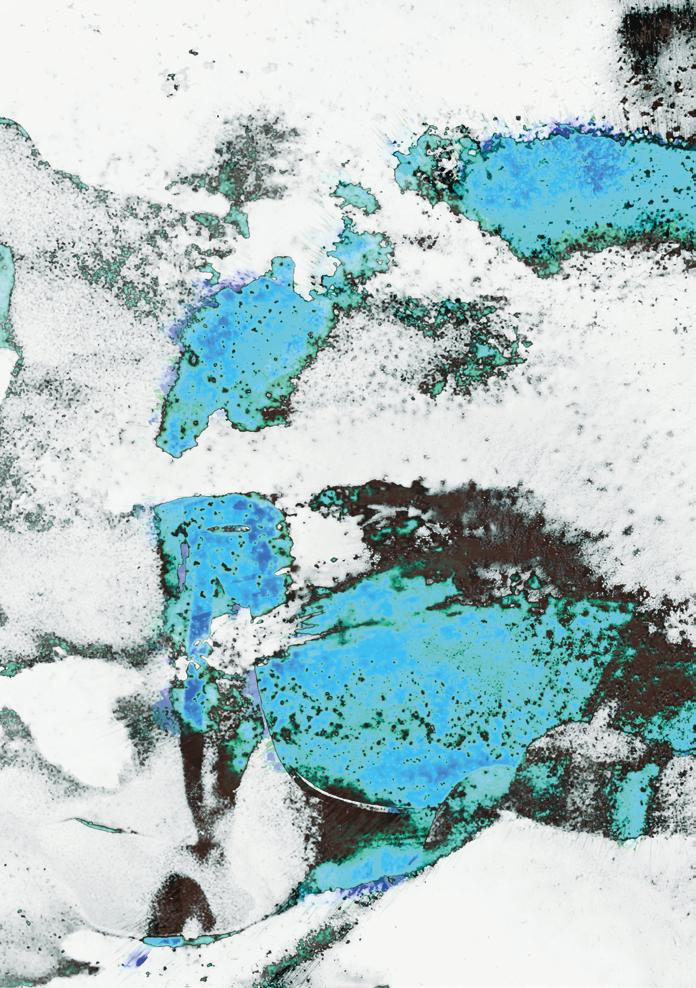
Looking to carve their own lane as producers; whilst Saul developed a self-taught prowess with the guitar, the duo approached the scene without any real musical training. I ask whether that held them back at all but when it came to laying down the foundations of tracks, they approached things with their Hip Hop heads’ on and focused on the art of sampling. “It wasn’t about being able to play the beautiful chords and improvise with difficult instruments” Will says. “It was about understanding and having a good ear for a great sample or break and how to put them together. It’s still the same to this day; we’re still based very heavily around sampling. I think’s that’s where a lot of British music has come from and Hip Hop is obviously the king of that.”
The duo then began to test the water with the first tracks under their Chase & Status moniker; a nod to their teenage graffiti tags. Given Wordplay’s origins, I was keen to press them more on how deep their roots lay in the scene. Will’s quick to confess that they weren’t that good “Or that brave either! The writers we knew were nutters and going out doing the most insane stuff. It was kind of heroic to us; rebellious, anti-establishment, which kind of went hand in hand with the music that we were listening to.”
It’s clear that whilst they may have been lacking in the skillset, their passion for the scene runs deep. Growing up with Theme will naturally have an impact on that as Saul alludes to. “He’s one of my oldest friends. When we were kids, we would be up and down Acton or wherever; I would be with him doing abysmal stuff whilst he’s doing like grade-8 level graffiti. The whole culture was where we were born. I used to go down Camden to by Graphotism as soon as I could and I’ve still got a couple at home. They were printed on this incredible, weird paper and the levels were so high. Even now with things like the sad passing of Skibadee, the amount of incredible murals have been so touching and it just shows again how many incredibly talented people are out there in the. Graff was important to us on that level in that we got our names from there and you can see a bit of the flair on things we’ve done in the past but we’ve definitely put the Krylon paint elsewhere.”
We return to music and after feeling somewhat nomadic with string of early singles via a selection of labels, the duo eventually signed to their dream imprint RAM Records; an impressive feat given how limited their roster had been prior to that point. Whilst it felt like the ‘icing on cake’ after the success of their early output, Saul admits that it was quite daunting to start with and putting pen to paper with RAM ironically hit them with writers block musically. Fast-forward six months and label head and “D&B Don” Andy C visits the studio for an update. “We got him to come and listen knowing it was the most god-awful music and fearing the worst” Will says “He quickly told us don’t worry and that he really believed in us. It was literally straight after that visit that we started working on stuff that stuck. That support and mentorship was inspiring and helped pull that record together.”
THERE WAS A LOT TO LEARN...
Working on music for a particular environment and not actually be able to go to that environment to get a response made us really have to draw deep to remember that feeling of why the fuck we do what we do.

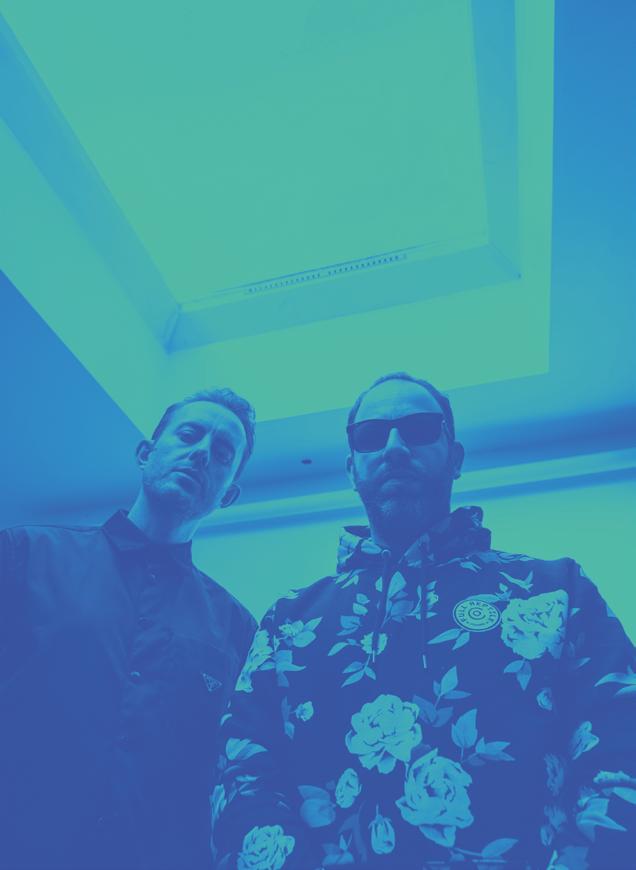
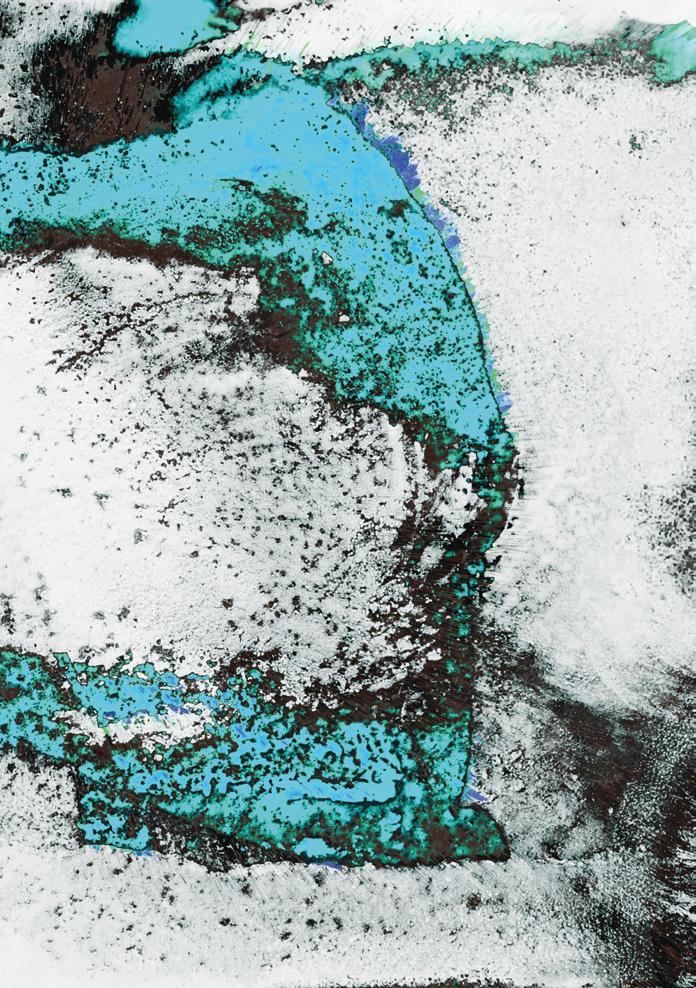
To throw BackRoad Gee on a dark, grimey D&B track with his energy seemed like the perfect way to return. We’re back – this is what we’ve been doing!
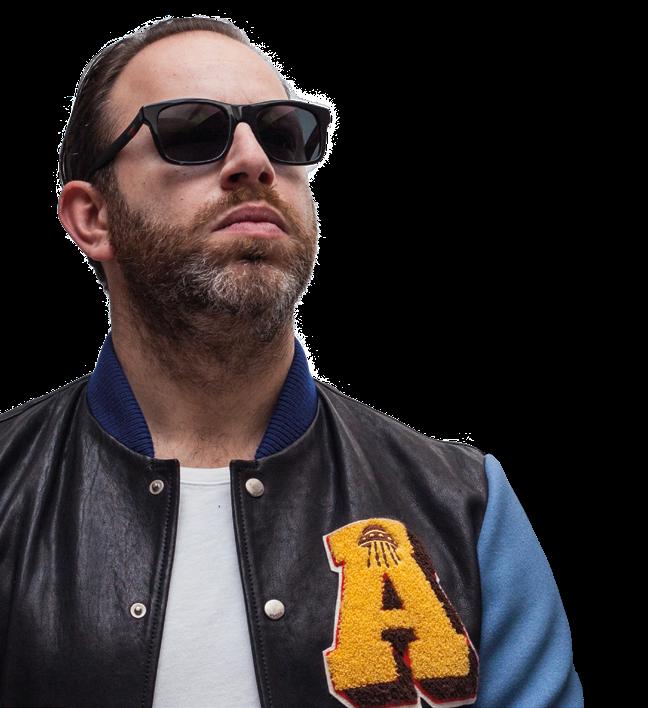


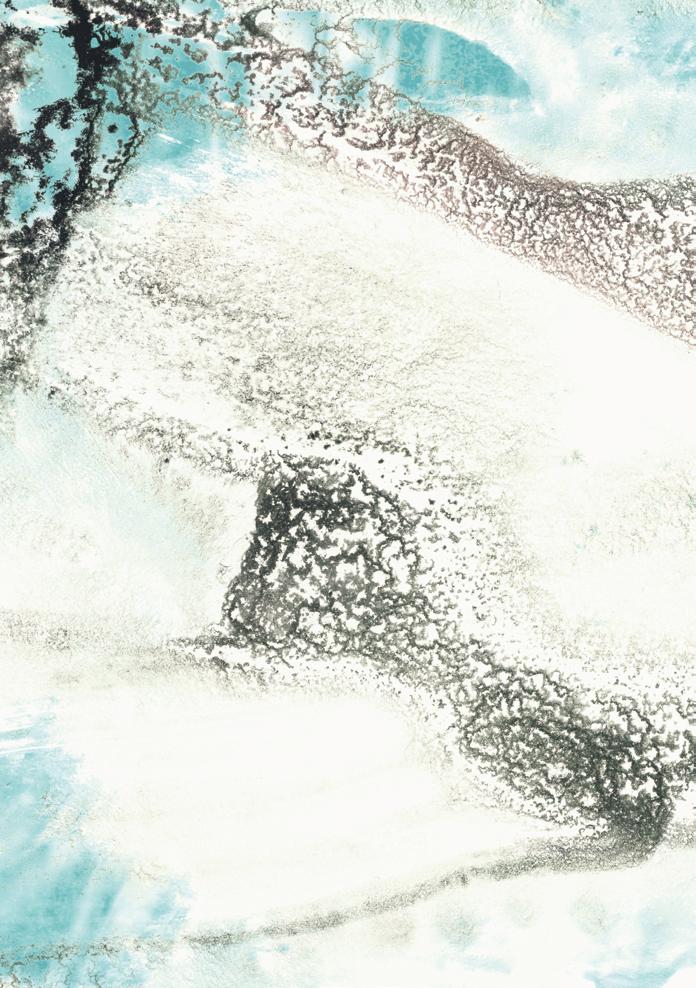
With the blockage clear, the duo set about crafting their first full-length release More Than Alot; a hybrid introduction to the foundations and inspirations of the Chase & Status sound. Whilst it’s core remained Drum & Bass, Saul says that they were desperate to show that they weren’t a one trick pony. “We soon knew we’d signed to the right label in the scene as RAM had never released anything slower than D&B but were suddenly releasing Eastern Jam which turned out to be one of the biggest Dubstep tunes of the time or Against All Odds, which was basically a throwback to early 90s Hip Hop. It was so foreign to RAM but they were like fuck it, we believe in them.”
However cliché it might sound, the duo retrospectively say they didn’t overthink the process for their debut. Whilst at the time it seemed like they were thinking of nothing else, the stresses of future releases highlighted how comparatively relaxed things were. The follow up, the richer, more polished No More Idols provided the duo with their biggest commercial success to date but as they pieced it together, they found themselves seriously questioning how the project would be received. “We thought it would be the end of us” Will says. “We’d ventured so far away from D&B – the forums, the scene etc, there were more tempos, full vocals and we were terrified of losing the fanbase that had supported us until that point.”
The driving point of the album for the duo was the trying to put together a live show. Drawing inspiration from seeing Pendulum go from DJs to “megastars with a band, playing stages we could only dream of”, they began to work with drummers and switched from the usual synths to guitar strings in search of expanding their output. “We were encouraged by our manager and label at the time” Saul says, “who said don’t worry about keeping everyone happy in the D&B scene. You’ve already done that so just have faith in writing great music. It was a head fuck! We absolutely hated the album, hated every single, wanted to pull Blind Faith. Eventually it’s submitted and it’s out of your hands. Thankfully, it was well received!”
With the album’s success seeing the Chase & Status stock soar, the duo found themselves in high demand; fliting between live shows and festival stages around the world, remixing for the likes of Jay Z to curating studio sessions with Rihanna. When the label then came calling for the next instalment, Will suggests Brand New Machine’s direction wasn’t obvious. “I don’t think we actually sat down and said this is the vibe. Sometimes we’re a little conflicted about it and wonder if it’s a little too confused but there’s some wicked records on that album that we’re proud of. The Pusha T one is a personal highlight; to get him on a record that wasn’t a traditional one and him being open to that and just delivering was mad.”
Tribe, the album that followed, again came at a time the duo were working on a lot of third-party production which they suggest is why it ended up as one of their most eclectic
releases. From Smoke Boys to Blossoms to Slaves in a matter of four tracks, Will and Saul acknowledge that the impact of juggling people’s projects alongside their own release perhaps left things a little confused. “There’s still loads of big tracks on there but maybe the album would’ve been more cohesive if a few tracks were elsewhere. Being able to look back and reflect on that is good. We’re not ones to read reviews as if we did, we’d probably have killed ourselves after the first day of doing it.”
Never ones to shy away from the workload, the duo re-emerged a couple of years later on a Ronseal-flex with a nod to their early roots courtesy of RTRN II JUNGLE. Touching down in Jamaica, Saul says they decided to avoid the overused and looked to work with homegrown artists to create something original. “We went there with the intention of making dancehall tunes and then use them as if they were samples we’d found to create what we perceived as what modern-day Jungle would be. That was a very fruitful and inspiring trip.”
Conversation gradually comes full-circle and we shift our attention the their latest offering, What Came Before. It’s been almost 20 years since the duo first released music as Chase & Status so I ask how the creative process has differed. They quickly highlight the benefit of hindsight at this point of their careers and being able to draw on what has and hasn’t worked in the past. However, with the latest project, Will suggests they’ve been working in unchartered territory. “It’s been a weird time to write an album; we’ve never had the two years that the pandemic provided. Working on music for a particular environment and not actually be able to go to that environment to get a response made us really have to draw deep to remember that feeling of why the fuck we do what we do.”
Time to focus solely on the music is obviously a luxury for the duo and Saul’s equally as appreciative of the impact that had on their output. “We were able to work out the focus, why we were here and making the album. We took the time to get the branding to a point where we were really happy with it. The passage of time has made it a special and important album for us.”
Whilst they’ve been fortunate to have uninterrupted time to work on new music, it’s also interesting to see that they’re not adverse to returning to their archives for inspiration. As fresh as they sound, the vocals for the album opener Don’t Be Scared were originally recorded with Takura nearly a decade ago and I’m keen to question how often they re-work their own material. “All of the time until it’s right” Will confesses. “That one was recorded maybe 10 years ago on a completely different beat which didn’t work but we loved the vocal. We kept trying to make it work on other albums but it never sat right at the time. Someone once told us to always look after our hard drives as we’re probably sat on million-pound material and since that point, we’ve kept everything. You never know when a new idea will materialise or suddenly sound right again. They’re priceless.”
9
With the album completed, the duo marked their return with the triumphant BackRoad Gee-assisted lead-single When It Rains. At face value, it seems the perfect choice; lay down a hard and energetic backdrop and add to the mix one of the hottest and most unique voices in the scene to remind the people what they’ve been missing. “To throw him on a dark, grimey D&B track with his energy seemed like the perfect way to return.” Saul says. “We’re back – this is what we’ve been doing! For our older, core fans; it’s been like ‘fucking yeah!’ For the younger fans that might have only been aware of us more recently or fans of him in general, it’s a new sound for them to take in.”
With the single accompanied by another impressive set of cinematic visuals (something that has become a bit of a Chase & Status calling card), I’m keen to understand how much importance the duo put on their videos given that they’re not in the ‘popstar’ mould. “We definitely don’t have the desire to be front and centre of our videos as we’re not the vocalists or performing” Will suggests. “For us, it’s the quality of the film or what compliments the music. It’s fun to have a cameo but I think people want to see us perform because of our music; not in the videos. We’re lucky and grateful that we’re not mobbed and can live normal-ish lives. Part of that is definitely because we don’t jump in front of the cameras and that’s paid off.
The album itself, as the title suggests, offers a snapshot of the broad soundscape the duo have established across the years. One minute we’re reaching the euphoric highs of Mixed Emotions, the next we’re coming back down to earth courtesy of Pip Millett’s hypnotic vocals before being thrown right back in the middle of the madness courtesy of the frantic energy of Run Up and the rave-inducing 5AM. It’s obvious that the duo take the structuring of the release seriously and Saul says they almost treat it like a DJ set; focusing on the highs and lows in the right places. “It kicks off with Don’t Be Scared which is this crazy, massive 140



ravey-track and it ends with Forgive Dark which is very dark, minimal D&B and kind of takes you back to our essence. If you flipped it and listened to it the other way around, for us it wouldn’t feel the same sort of record.”
Alongside several headline festival slots across the summer and a selection of intimate raves, the duo are celebrating the release of the new album by bringing back their infamous live show. Having performed on countless stages and venues across the world, they decided to park the live show at the end of 2018. Whilst they intended for a break to let things breathe, the pandemic elongated that downtime and it’s clear that they’re now itching to bring things back to life. “We wrote the album thinking about the live side of things and I can’t wait” Will admits. “The band has been a humongous part of our career and it’s often elevated us above the dance tents. We’ve built a different type of show to come back with later this year and that, coupled with loads of new music to add to the playlist is massive for us. It’ll be surreal to walk back out onto the stage.”
As our time together draws to a close and having recapped on what has come before, I naturally have to ask what comes next? “Just this album man. We’re really proud of the project and there’s still a lot of work to do.” “It’s our sixth album” Saul continues “The last album from our original deal which is very rare for an artist to have seen out the full term. It will be a big milestone for us and there’s so much that needs to happen for it to be a success; you need to sell it right, play it right, market it right. We’re so focused on the next year.”
What Came Before is out now on all platforms. Be sure to follow Chase & Status for the latest news and releases: @chaseandstatus

whatcamebefore.net

GOING on 30

CRISTALE
Interview by Ed Lindsay
Photos by James North
South London rap talent Cristale has dropped her debut EP ‘What It’s Like To Be Young’, and it doesn’t disappoint. Hard hitting, hard spitting energy that you would expect from this South London force who is playing no games!

A seven-track release, ‘What It’s Like To Be Young’ is Cristale’s largest body of work to date, an exciting sonic snapshot of one of the most hotly-tipped artists in the UK right now. The record kicks off with 2021 single ‘Morgan’, which sees Cristale offload fierce, rapid-fire bars detailing life on the roads. The track was previously crowned ‘Tune of the Week’ by BBC Radio 1Xtra presenter Nadia Jae and received further support from Snoochie Shy (1Xtra), Robert Bruce (Capital Xtra) and Ellie Prohan (Kiss).

Next up is January single ‘Militant’, pairing a vibrant, panpipe-led production with her punchy vocal delivery, followed by the suitably-titled ‘Damage’ and uncompromising ‘Braids’. ‘Hold N Squeeze’ carries a similarly menacing energy, while new single ‘13 Going On 30’ sees Cristale ruminate on growing up in the ends and what has to be done to survive.
Closing things out, November single ‘Merryland’ is a powerful tour-de-force that’s steeped in reflection. Making it onto BBC Radio 1Xtra’s B-List, the track ensures that the EP finishes with Cristale’s signature sound.
A poet, storyteller and artist, Brixtonborn Cristale first began rapping back in primary school, challenging her peers to rap battles and later winning a slam poetry competition. Drawing inspiration from grime artists like Chip, Stormzy and Wretch 32, as well as funky house acts like T2 and Sweet Female Attitude, she burst onto the scene last year, racking up hundreds of thousands of streams on tracks like ‘Next Up’, ‘Scores’ and ‘Whites’. More recently she performed at The Great Escape in Brighton and dropped ‘Bong Bing’ with Laa Lee, a viral single that has racked up close to 4 million Spotify streams.
Wordplay caught up with Cristale recently for a quick Q&A, delving into her beginnings as an artist, not just musically but across many creative areas. The strengths and talents of Cristale are to be admired and we’re looking forward to more big things this year.
Let’s take it back to the beginning. I know you started out doing poetry in school but what sparked your love for music?
It was always there you know? I grew up in a musical household and not just singing and rapping. It’s been embedded in me. At the time I didn’t know how to channel what I was going through; I was doing my A level and about to leave secondary school. Then one day I put my poetry to music and it was the outlet I needed. From there it just became more and more serious.
You were a keen footballer when you were younger and were on Crystal Palace’s scouts’ radar at one stage. Was there a point where you had to make a decision between picking music or the football route?
I needed to get back into football but it wasn’t a choice between music and football. The time frame was different. I stopped playing football in sixth form and then after that I started rapping on Instagram for fun. It was never like I was going to be a rapper one day at that point. The decision to make music seriously was only 2 years ago.







MAVERICK SABRE

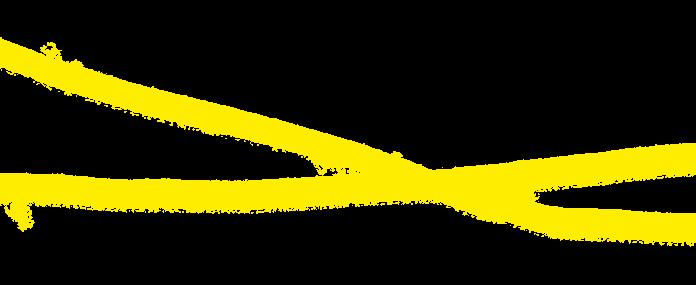 Interview & Photography by Timothy Ogu
Interview & Photography by Timothy Ogu
Mav: I suppose I just looked to record the records, I never intended to make an isolation record publicly. There’s probably 20 other songs that capture my feelings and emotions a bit more directly that never made the record. But in essence, the album wouldn’t wouldn’t have been made if it wasn’t for the lockdown situation over the last two and a half years.
It was initially an EP and we were going to put it out at the end of 2020 alongside another EP. Then as time went on, things in the world developed and stuff in my life also grew as well, we continued to move on with the record in the same vein and it just grew a bit more. It’s weird, it is an isolation record and it isn’t at the same time, but it definitely wouldn’t have been created or feel the way it does without it being in the time that it was made. I wanted it sonically to feel like a step away from everything that I was feeling. I think maybe that’s why something pure came out.

Tim: Mm interesting, to go off that point, you wanted it to feel like it felt like it was a step away from everything you’ve been feeling. How does this differ from the processes of your last album? How does this album sonically differ from your previous work?
Mav: Yeah, I think the process is quite different on this record because I never set out for it to be an album. With the last three albums, there was a point where I was like, “Oh, this is an album now.” Whereas this was strange for me because it started as an EP, it was only when I got to track 12 on the record where I was like “this actually sums up the album.” The process was definitely quite different, this was more kind of step by step, stage by stage record than the last three albums.
Tim: You said track 12, Get down. Let’s just let’s just unpack that record because it’s a sound I wouldn’t associate you with, but I’m enjoying it. It’s my favorite track on the record. How did that come about? What was the session like?
Mav: That song actually has loads of different stages and I’m glad you said it was a recording you wouldn’t expect me to do. I want to constantly do that. I feel like it’s a dangerous place to get stuck in as an artist where people expect a certain song off you. Although I think it’s great to have expectations of the artists and musicians we listen to, I also want to make music that I love. I want that to develop and change with every record that I make and never be stagnant. That record itself was that that was actually a beat. It was like a four to the floor, house, funky kind of record. To be very honest, the initial idea of the record was for a beat tape I was looking to make and put out.
It had no cords, it just had broken, pitched down verse that I had spat and I had made the sample & chopped it up. Then I played it to Zack, the producer, and he just played a light baseline over it and I was like, ‘you make it sound a bit disco and funky’ and we just developed on that. I had been working with Nile Rodgers on a couple of different
things before this but when I played it to him I was mad nervous because I was like ‘this is the king of pocket and this is a bit wonky.’ He loved it though and said I’d like to be involved in it, he then laid down some guitar licks on it and that was the finishing touch of the record, it was kind of built in different stages.
Tim: Love that man, honestly. I must ask as well, what’s your favourite record of the album?
Mav: My favourite record is probably Like This. It brings me back to the records I made when I was 17. It’s just me spitting and on this simple beat, but at the moment it’s probably the record that I’m playing the most.
Tim: Okay, that’s interesting because I wanted to talk to you about that record specifically, I know you used to rap more back in the day but I wanted to ask what inspired this record? As I listened to this record more and more I could feel that sense of a controlled angst in not only what you were saying but also the way you were spitting, where were you when you wrote that record?
Mav: I think out of all the songs on the album, that that record was a lockdown record. It was just me in the middle of everything, kind of removing myself from the world thinking what’s my place in the world? What do I even think about the world at the moment? It was written in about an hour and it was just how I felt that time, a bit tentative, a bit on the edge. I think we’ve all had those moments in the last two and a half years where it feels that there’s a lot of pressure on our heads. We’re not sure if the walls are crumbling in or if it’s our own walls in our head crumbling in. That track was just kind of me just releasing me. It was definitely a poignant record of how I felt at the time.
Tim: The Maverick Sabre that started this record, what would he say to the Maverick Sabre that finished this record? I know you can go through a process of reflection of who you were and who you are now when you finish an album, so I ask, who are you now and what would you say to the person you were?
Mav: I think this record helped me learn a lot to be honest. I think even right to the end of his finishing his album, I was in kind of a lot of deep conversations with myself, and I wasn’t even sure I wanted to put the record out. I wasn’t sure it sounded like an album or what I wanted to do. If this was me having a conversation with a person starting the record, not knowing he was starting the record, I would say let things be the moment that they are. I think at times I got too worked up about who and what I was and I just learnt that this, right now, making music, everything is just part of the journey.
I think another thing I have realised is to always keep on reconnecting with a young version of myself. Before we start thinking about releases, success, shows and whatever comes with releasing music, we all make music for the
love of it and to throw paint against the wall. That’s the big thing. That’s my passion, you know, is to throw paint, experiment and to figure out what gets me as a fan of my
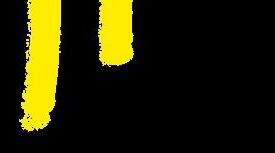
Tim: Wow, I love that answer, thank you. What was the idea behind the artwork?
Mav: I can’t even take any credit for that, it was achieved by a friend of mine, Rashid Babiker, who did the artwork for my last album.
I initially had a photo that my partner actually took with me, she actually took it at a video shoot and we were going to use that as the album cover. It was this kinda lofi, weird, warm photo with this red hue. I sent it to Rashid and said, this is the artwork I want you to create something around it. He came back to me and was like, “I’ve got an idea, can you let me run with it? And if you don’t like you, don’t like it” and I was like sweet. So he came up to my house and he took like angled photos of me, I just had a blank wall and he took maybe like 15, 16 photos of my head moving in different angles. Then 5 days later he sent me back the artwork, he was like “this is what I have taken from listening to the record, this is what I had to my head” and I was, “I love it.” In a weird way. It is connected with everything, and it was like the cherry on top of everything.
Tim: Three features, well two main features in terms of Demae and Saha Keable and Nile Rodgers on guitar. How did they come about?
Mav: Demae is a great singer I have known since her days in Hawkhouse and we were signed around the same time. I have always been a fan and we’ve been friends for a while so we just re-connected on this new record.
Then Sasha Keable was another friend of mine that I’ve known for a couple of years and we’ve just had all kinds of similar circumstances, we’ve been fans of each other’s music, we’ve kind of walk together loosely all over the years in the industry, and she was the the first person that came to mind when I felt like I needed someone on Middle of Eden.
Nile I’ve met a couple of times and worked with him on different things, again I played him the record, he loved it and it kind of all kind of all came together naturally.
Tim: One thing I really wanted you to open up on was Hip Hop and the importance it has on your music. The Hip Hop thread in this album is so strong for me, even in tracks like Walk These Days where you are basically rapping with a melody, what does Hip Hop mean to you?
Mav: Hip Hop is the reason I’m making music, to be honest. It’s the reason that I was introduced to so many different artists that have become my favourite, from jazz musicians to soul singers I only found out when I started producing and sampling. For me, it’s like the most beautiful genre in the world in the sense of what it encompasses and how


AFRONAUT ZU



Interview & Photos by Kate Vice
Afronaut Zu’s incredible voice was first brought to my attention when I finally made the trip to deepest New Cross to watch Steam Down, a collective of incredibly talented musicians and singers who perform 2 hours of improvised musical magic every Wednesday. The members rotate but that day it was Zu’s turn as lead singer. He came on stage almost completely covered up, mask on, hood up, locs obstructing what was left to see. Hmmm… curious. He took his time but as the night went on the mask came off, the hood came down and he unleashed a vocal tour de force of such primal emotion I was instantly hooked. His voice wouldn’t have been out of place at a Flamenco tablao or on an Arabic folk track. But also he can rap. Who the hell was this guy?
23
A quick Spotify search revealed a litany of collaborations, most notably with Rudimental, Netsky, Foreign Beggars and Dizzee Rascal. Plus an album of his very own, but apart from that there was not a shred of personal information to be had. How could this guy be everywhere and nowhere? Time to roll my sleeves up and get in touch.
We met at Hackney Wick and after the shoot we settled down with a pint so I could get his life story. I asked him to start at the beginning.
Born in London to Nigerian parents he explains that his parents were both contemporary African dancers and the family at large encompasses a variety of artistic

a howl than a sing. It must have been pretty bad because there were a few instances where people were like ‘calm down’. I remember my school teacher said something along the lines of ‘keep the day job.’ Luckily that didn’t deter him and that ‘howl’ has now been harnessed into kind of a signature sound.
But change was just around the corner in so many ways. Not long after, he was shipped off to spend his formative teenage years in Nigeria. ‘I was livid, it was fucking surreal.’ And yet it was here that people started to appreciate his voice and encourage him, he says for many years he thought the compliments were a joke. Over time he came to love Nigeria, a love which is clearly core to
THERE WAS A LOT TO LEARN... YOU HAVE TO BE ON YOUR TOES!
talent. So surely a creative path was inevitable? ‘They’re still Nigerian, the focus was very much about school’. ‘I was always pretty good at dancing but my singing was apparently “horrible”.’
“What??” I exclaim.
‘Yo bro this story is mad to me too because I’ve always sounded the same to myself. Someone very close to me told me when I was in church back in the day, when I was 12 or 13, I think I must have been singing pretty loud…the way it was put to me was it was sounding a bit more like
his identity as we see it today, from his stage name to his album art to his love of rapping in Yoruba.
When he reluctantly returned to the UK his focus was on acting. In an unlikely turn of events, an audition for a musical turned out to be a pivotal moment in his musical career. At the audition he met a like minded guy called Claima. Both equally uninspired by the musical theatre scene (‘no disrespect to people who love musicals’) they decided to start doing shows together.
‘We were all just into having fun and being challenged
24
at that time.’ Claima put together a multidisciplinary collective called Lab Squared where Zu first started making music with Tinyman (also in Steam Down) and from there Tinyman created Orph Gang. Bear in mind Zu’s still in the original group he joined when he came back to the UK. ‘I’m a bit of a collective slut haha!’
‘But Orph Gang was different.’ There were eight members including one Kojey Radical. ‘It was a dope experience because we were very heavily performance based, we wanted to do things to a very high level…if anybody was about in Shoreditch at that time Orph Gang Live was one of the baddest shows. After Orph Gang Live we were basically locally famous.’
Next up were weekly acoustic Sundays at Boxpark even though he didn’t have his own songs. ‘I’m trying to work out how the fuck I did it.’ Did he freestyle? ‘Nooo I’m a terrible freestyler. I don’t know how I’m surviving at Steam Down. The Steam Down nights are improvisational nights. Actually I do, they’re a squad, we learn each other. They’ve got my back.’
Even though music was clearly his world he went to uni to study TV Production but he found it to be disturbingly exploitative so when the opportunity arose to travel the world touring with house DJ Damian Lazarus it was sayonara Shoreditch.
Incredibly, he says his focus was still acting and he viewed the music as a fun little side thing, even while he was touring the world. ‘It opened me up to dance music. That was key.’ His cultural perspective on dance music was ‘this isn’t for me’ but as the world of dance music embraced him he ‘couldn’t deny’ his reality any longer and he had to accept it was actually ‘really cool’. His array of life experiences are immediately evident in his genrespanning discography. Good luck pigeon-holing this guy.
Coming out of that he asked his manager to find a new tour. Another artist under her management had an audition for Rudimental but needed a bit of encouragement to go, so Zu said he would audition too. Shockingly, Zu wasn’t shortlisted. ‘It’s nothing personal, it’s a normal process.’ But in a twist of fate he did end up being called back for a second audition ‘and the rest is history’. He describes working with Rudimental as very personal. It’s not a dictatorship, they share ideas and criticisms. I ask what the most important thing he’s learned from it has been.
‘Their patience has taught me to be patient. There have been times when I didn’t understand what was going on and they could see why I was seeing things the way I was seeing them and they allowed me to get to the point where I understood. I think, if you really want to care in this industry, understand that the industry isn’t set up for people to care so you’re going to have to sacrifice. Touring with them is a really nice experience but over the last 4 or 5 years I’ve learned how much being nice costs them personally.’
‘You obviously really enjoy working with them.’

‘They put a lot of work into helping me understand and involving me in things. That’s how the Netsky collaboration came about.’
‘Lately you seem to be focusing quite a lot on drum n bass…’
‘I fucking love drum n bass. I’m a performer so I like things that are emotive. And I like things that are sure and drum n bass has that energy of 100% when this drops you’re losing your fucking mind.’
He explains that Rudimental allows him to do things his own way, it’s always their way but they make space for him to shine as an artist in his own right. ‘They’ve made a lot of effort to make sure I feel respected in that world. They’re amazing people.’
When asked about fame, something he has clearly avoided courting ‘there’s nothing wrong with being famous, but I feel like certain elements of fame aren’t healthy and with the personality type I have I don’t think it works for me.’ The crowds after Rudimental shows took him aback. ‘The stage is a controlled environment, even if on stage you lose control it’s still a controlled environment. Off stage is another matter’. Being mobbed by hundreds of people post show clearly wasn’t a situation he felt instantly comfortable with.
I remind him that we’ve skipped over the release of his album. ‘I’m not really a releasing music type of artist, I just wanna do the live stuff but we needed to create some context so I released Melanalia. Melanalia was… is, just the beginning of an idea for me. That was one of the times when my focus was very much Afro stuff. Like, what is going on with us? How is it that in different countries we’re experiencing similar things? As a young black man I have a problem with police everywhere. I’ve been to many countries and I don’t necessarily have an encounter with police in every country but I’m always aware to try and avoid that experience, that encounter, you understand? And I find that very odd. It shows me that the issue of black men and the police is a systemic issue. It’s not based on what country you’re in, it’s not based on whether you’re in a predominantly white or a predominantly black country, it doesn’t matter. I’ve actually been very blessed, very rarely have I had terrible experiences with the police, maybe two or three times. But as someone who feels they fall under the radar a lot, not even because I should, I just happen to experience that consistently. So I was getting into seeing the similarity between me and my peers both here and abroad. I started to look at what our relationship is with ‘back home’. But I felt like with Melanalia it needed to start with our experiences here. So it deals with some basic emotions, love, escapism…things that aren’t unique to Afro people in the UK but I’m just talking about what I’ve experienced as an Afro person. And that’s what Melanalia was about. I recognised a space which I’ve
25
started to describe as ‘Afro-Psych’ music. I don’t think it’s necessarily important to the world, I think it’s going to be important to Afrodiasporians and maybe to Africans as well… and hopefully everybody else but I know who it’s for and why it’s for. I feel like in a world where for a long time we have not felt very well represented, this will be a space where you can just come and be yourself. It’s not about how commercially valuable this experience is, it’s about you just having this experience as an Afro person.’
‘Is there a feeling of operating in two worlds?’

‘Yeah, as Afrodiasporians we don’t actually have a space that can encompass all of us but we are surrounded by people who do. That creates some complexities and conflicts. So you end up in this grey world. And that’s where Melanalia is speaking from. Now, looking at it I feel like it’s a very grass roots beginning stage of understanding some of those concepts.’
Which segways nicely into his ongoing membership of Steam Down which is very much an Afro space, by ‘Afro kids, for Afro people’ that welcomes everyone but tolerates no bullshit. It’s a space and a concept, he says, that is needed not just in music but in all areas. Just like me, from the first time he attended he was hooked. ‘It blew my fucking mind. It blew my mind, for so many reasons. I’d grown up in a musical space but hadn’t seen music that I had grown up with evolve. But this was something that I could see was bordering on what I had heard before. And also it was a healing. The week dropped off, the month probably dropped off. I was spellbound. Spellbound, spellbound, spellbound. It felt like home immediately.’
‘Music is a spiritual tool and people are swinging swords like they’re sticks. At Steam Down we do things with intention. We use alchemy to make sure you have a decent week.’ And that artform is what makes him tick, more than money, more than fame.

What about another album? He says he’s really loving collaborating at the moment, and has a wealth of collaborations ready to drop but as far as his personal music goes he’s reluctant to keep buying into the Spotify and Apple business model. He no longer wants to be a part of a structure that keeps corporations wealthy and musicians poor. ‘I think the culture of exchange is something that I need to figure out how to change. Consumers can collect music in a better way and artists can share music in a better way, a more honest way.’
We’re both running really late so I ask about the future. ‘I just wanna have fun. I’ve got stuff to release this year. The main thing for me is that people need to come and have an analogue experience with Afronaut Zu. Come to through to shows. Steam Down is on tour this year. Fingers crossed Rudimental too. I’ve got a show in April opening for Brymo in London but the focus is Steam Down. If you want to be part of it you have to come through. See it for yourself and feel it for yourself.’
Check out his latest collaboration ‘Intalekt Presents: The Dojo Cypher’ on YouTube.
Be sure to follow @AfronautZu (IG) for the latest news and releases.

Proper Juicy



MELONSKIN RECORDS
Interview & Photos by Harvey Wallbanger Edit by Kate Vice
It is said that there’s a fine line between madness and genius. Pete Cannon and Dirty Dike walk that thin line with elegance and skill. Both wield inquisitive minds driven by a desire for excellence in their respective fields that makes them a powerhouse of creativity when they combine forces. Following a rich history of making sweet, sweet music together they’ve decided to take things a step further and build a record label. Nothing too unusual there, you might think? Well then you clearly haven’t been paying attention. I grabbed my tinfoil hat and went down the rabbit hole to get the goods on what they’re up to this time!
So, what’s the story behind the name Melonskin Records?
‘It was 2005 and I was at the Strawberry Fair’ explains James. ‘I was on lots of LSD and I bought this melon and scooped out the inside. I spent the day walking around slapping people with the remains shouting “MELON SKIN” and someone started calling me Mr Melonskin and I put it in a verse on my very first album and the rest is history.’

‘See, I didn’t even know that.’ Pete looks delighted. ‘There you go. I thought it was just because you know, twisting your melon, using your melon.’
James - We were going to go for...
Pete -Daiquiri Records!
‘What happened to Daiquiri Records?’ I enquire.
‘There is a Spanish house label called Daiquiri Records. Melonskin is better. And weirder.’ Replies James.
‘Going back to basics, how did you two meet?’
There’s a pause and some head scratching.
Pete - Fuckin’ hell
James - I know this!
Pete - Hmm, I don’t!
‘Years and years and years and years ago’ begins James, ‘we all lived in Brighton. Contact Play. We met Leaf Dog, BVA and DJ Filthy Fingers, otherwise known as The Three Amigos.
They had beats on their projects that were like, WHOA, what are these? Their production was much better than ours. We had quite crusty beats from our friend who didn’t really make hip hop from Cambridge. We would literally rap on anything back then, because we were like, “sick, is that a beat? Wicked! Can we rap on it?” Whereas, they had proper sounding shit. There was one producer called Naive, who went on to make Baxter’s first album, and the other guy was called Pete, they produced in this crew called Tactical Thinking. They had a particular sound and we fucking wanted it. So, we poached them.’
Pete clearly isn’t convinced by this answer ‘But when did we first meet? I can’t remember.’
James - It would have been a gig somewhere?
James - Beer and rap!
There’s a moment of triumph. But just a moment.
‘It wasn’t there though.’ James says, a little crestfallen. ‘Because I don’t think I’d been to many of them. Was the first time we met on the Return Of The Twat video shoot?’
You can tell there’s now some serious memory digging going on behind Pete’s eyes and it’s becoming clear that this particular bit of musical history might be lost to the winds of time.…. ‘I think it may have been.’
James - ‘I invited you down because I wanted you to get cream pied in the head.’
‘The first time I met him I took a fucking cream pie in the face.’ Pete confirms.
I can’t help but wonder how anyone could forget that.
‘And how long ago was that?’
‘2013.’ A concerned look crosses Pete’s face. ‘In fact, surely it was nights out in London with Dylan and the rest of Tactical Thinking freestyling on a bus.’
‘Yeah! We were with Stig and all that. Freestyles on a bus. And Syntax had just moved to London…And it was the ‘Chester P Five-Word Freestyle’ thing.’
It seems a consensus has been reached.
Pete looks excited, ‘You’ve got to check out the footage of James rapping in that freestyle. It’s very rowdy. Rowdy young James. It’s on YouTube’
‘Jump-Off filmed it. Stig hosted it. I was shagging people’s mums and all sorts in that freestyle.’ James laughs.
It’s all coming together now.
‘We began working on Return of the Twat.’ Says Pete.
‘I wanted one half of Return of the Twat produced by Pete and the other half by Naive. So the two super cheeses from Tactical Thinking produced half the record each.’
Pete grins ‘If you fancy a laugh at my expense, go and listen to the Tactical Thinking album as it has me rapping on it.’
Having escaped that brain maze I think it’s time to get what I originally came for.
‘What inspired you to set Melonskin up?’
‘An amalgamation of positive and negative experiences
over the years inspired us to begin shaping a platform.
A vehicle for music. There were certain things that I found very restrictive; we all made hip hop but it all became very UK hip hop and Pete and I make much, much more than that.’

‘There’s a lot of music that Pete and I make that isn’t and wouldn’t fit into the demographic that we’ve kind of created for ourselves. The trouble is, labels often become pigeonholed because the content becomes too similar. I also knew there were certain things we could do to make the process more ‘friendly’ for artists, the first thing being to offer up greater freedom in a label setting. Our aim is to facilitate the individual needs of each artist. That comes first in every conversation we have, the label comes second.’
Pete chimes in, ‘We are artists ourselves. We totally understand that side of the game, so our aim is to lean on that knowledge to give artists a platform, across a real spectrum of genres. There’s going to be a smorgasbord of genres on Melonskin.’
James - ‘I think that covers it. Where are my Rizlas?’
30
Pete states ‘There are a few artists that we’re looking at, that we want to bring through as we see real…’
‘…Potential.’ James finishes for him. This habit of finishing each other’s sentences is very endearing and demonstrates how in tune they are with each other. ‘We want to help artists develop. The journey I’ve experienced, I’ve learned so much through trial and error. People often don’t give their music the TLC it deserves and I think sometimes it takes somebody else to come in and say, hold back on that, that’s really good. If you do it in this way and don’t rush it, people will respect it more.’
Pete agrees. ‘We have a breadth of people around us; musicians, graphic designers, videographers, you name it. So we can seamlessly put someone in touch with the relevant creatives to best bring out the spark. It’s that spark that we’re looking for first, then we begin trying to find ways to amplify it. CONNECTING THE DOTS.’
James, ‘It’s also fucking fun to develop an artist.’
Alright, so, what role do you feel your record label plays in today’s music climate?
James - ‘It’s a label built by artists for artists. Most labels don’t put the artist first, whereas, we offer bespoke contracts for each artist that caters for their specific needs based on their profile. If your figures and numbers aren’t great, then we need to work on developing you as an artist. So you’ll be treated differently because you need that to grow. If you’re an established artist who already has their thing firmly in place, you just need someone to hold the label stuff down that you don’t want to have to think about. We can do that too!’
‘The first question we will always ask is; “how would you like to present yourself?” Not, “how are we going to make you a part of our label?”
It’s the beauty of a genreless model; we sit in the background and facilitate each artist individually and specifically on their journey rather than our journey.’
Pete - ‘You’re not part of our journey. We’re part of your journey. ‘Also, two in-house producers, right here, me and James.’
James - ‘Most labels outsource all that stuff. But we aim to handle all of that in-house, which I think sets us apart, that we can actually have a significant input in realising the sound that an artist actually wants to achieve.’
Tell us more about the hardware you both use to make your own music?
‘We’re both fans of new, old, interesting, innovative ways of making music.’ Starts Pete.
James - ‘If Pete finds a keyboard on the street, we’re both like, “let’s go back to the studio and see what it does?”
“Oh, my God, it doesn’t do anything! That’s why they dumped it on the street.”
It could be the shittiest kids’ keyboard ever. But if it makes any kind of noise, or there is any potential to include it in a song somewhere, then that’s interesting to us.
It’s also about idea development, not just final results. It’s the process of getting somewhere; the hows and whys. If you’re just dragging and dropping samples that you took off the Internet, then whatever. But when there’s a story behind the process, that is what we’re most passionate about.’
“Like, what the fuck is that sound that you’ve put on there?”
“Ah, do you know what, that’s actually a pan from underneath the sink that we used to cook pasta in.”
They’re both laughing now.
Pete ‘Ahahaha! You did that the other day.’
James, ‘We run a studio and those sorts of experiments happen every day. Let’s bang this lampshade with a spoon and chop it up…’
Pete - ‘Both are great examples. There is a sound on one of James’s tracks where we were literally banging a lampshade. As artists, we’re just interested in pushing the envelope and creating music in interesting ways.’
Are there any other artists that have inspired you to make music this way?
Pete - ‘Oh, yeah, they’re always the ones that pique the interest, but you know, there’s loads of jungle producers who still use Amigas and stuff, but I don’t see anyone really making much hip hop in that way.’
The Kount is a great example of a hip hop producer who does all of his stuff live on the Fender Rhodes and live drums. It captures people’s imagination when they see someone making actual music in front of them. We like to think we do a similar thing that transcribes to the end product, via the process.
Anyone who’s just taking something from the kitchen cupboard and creating a sound out of it, that’s art in my book. It’s like, oh, I wouldn’t have fucking thought about that and it becomes interesting from the source. Like, “I don’t know if it’s a modular synth or a kids keyboard or making a fucking banger with a set of shoes”. Whatever it is, it works.’
For any music lover this project is a seriously exciting event. If it was anyone else I might feel a bit circumspect about a label based on genreless pots and pans but if anyone can, these two can.
Curious? Keep up to date with releases here: @melonskinrecords

















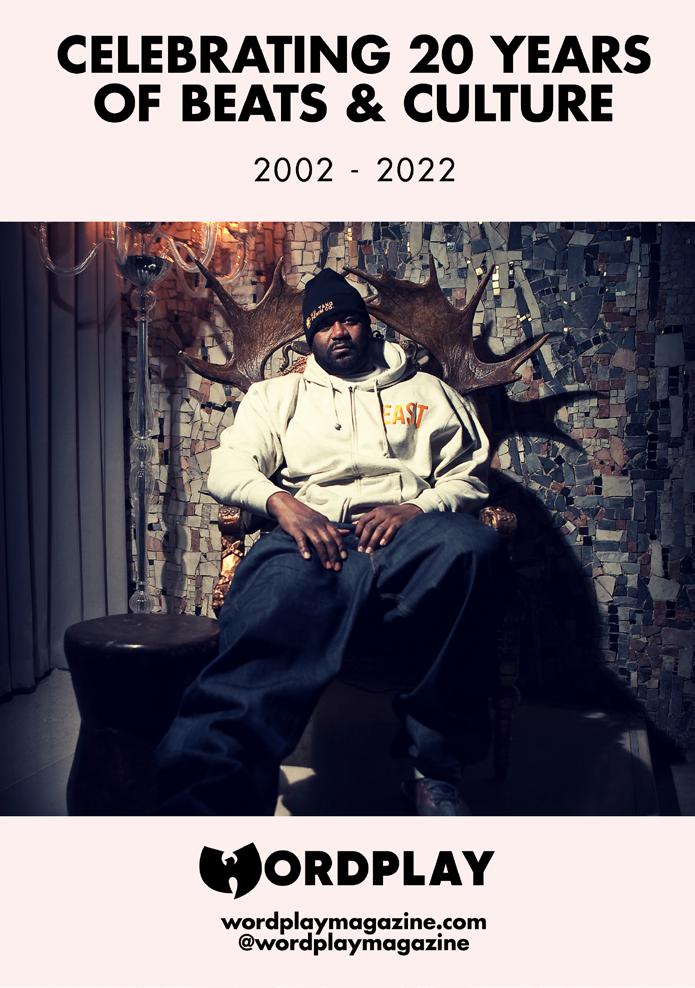






























 Interview & Photography by Timothy Ogu
Interview & Photography by Timothy Ogu


































